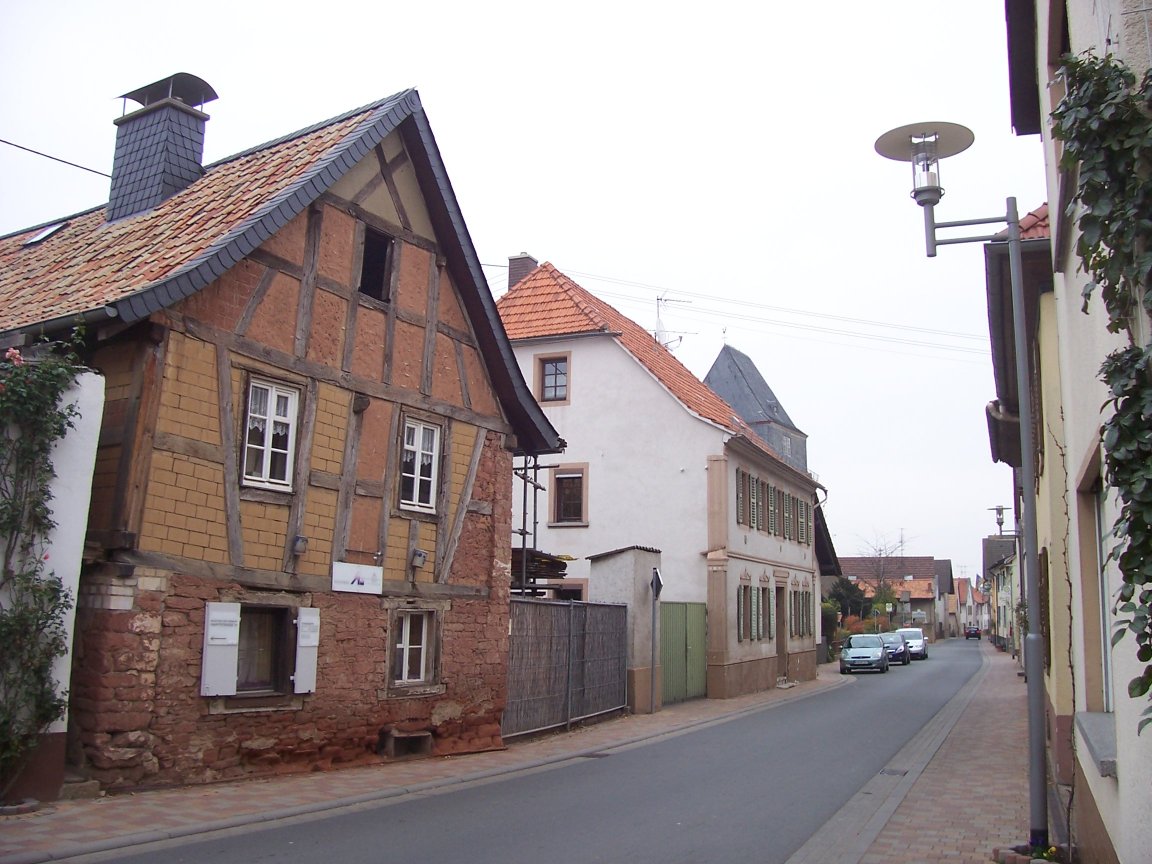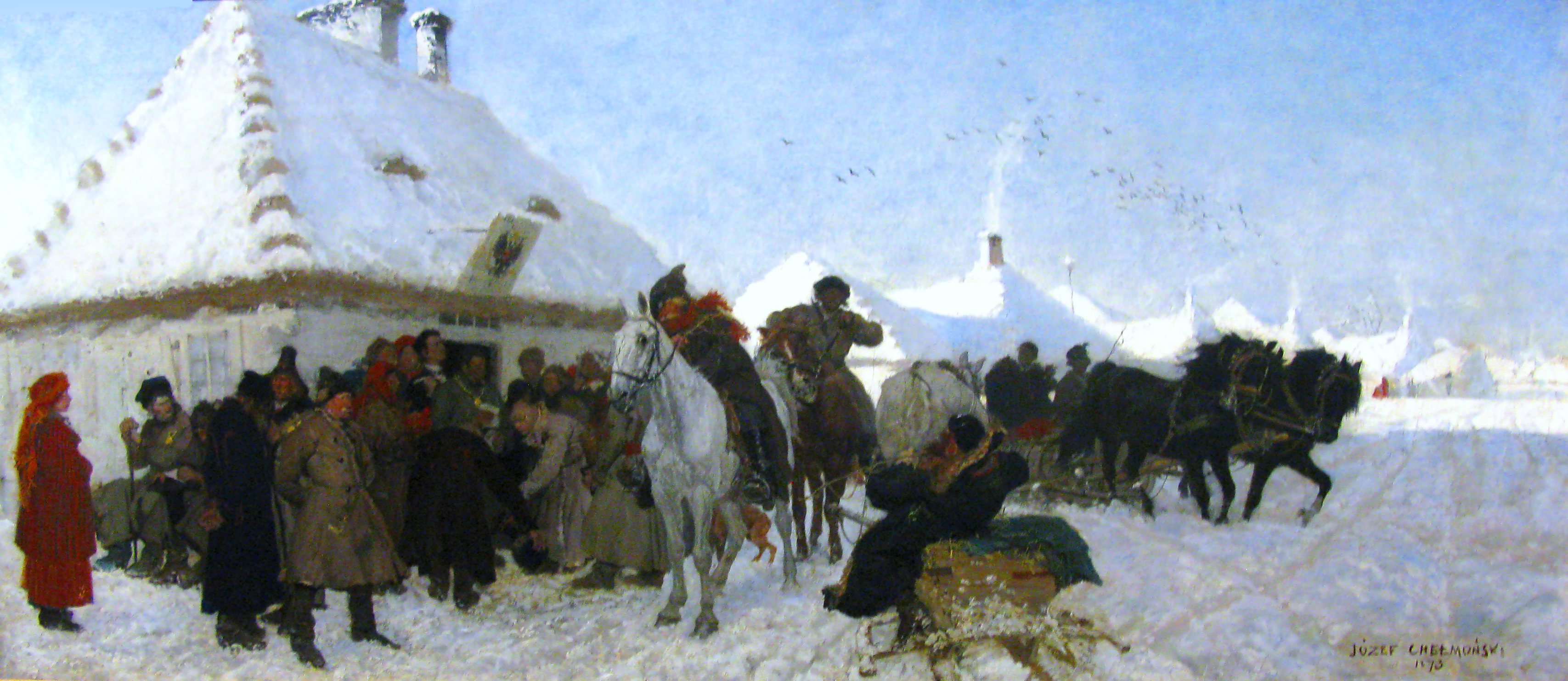|
Mandel, Germany
Mandel is an ''Ortsgemeinde'' – a municipality belonging to a ''Verbandsgemeinde'', a kind of collective municipality – in the Bad Kreuznach district in Rhineland-Palatinate, Germany. It belongs to the ''Verbandsgemeinde'' of Rüdesheim, whose seat is in the municipality of Rüdesheim an der Nahe. Mandel is a winegrowing village. Geography Location Mandel lies in the Naheland (the region either side of the River Nahe), south of the Hunsrück, some 5 km west of Bad Kreuznach amidst vineyards, meadows and woodland. Mandel sits at an elevation of 200 m above sea level and its municipal area measures 6.33 km2. Neighbouring municipalities Clockwise from the north, Mandel's neighbours are the municipalities of Sankt Katharinen, Roxheim, Rüdesheim an der Nahe, Weinsheim, Sponheim and Braunweiler, all of which likewise lie within the Bad Kreuznach district. History Mandel (then ''Mannendal'') had its first documentary mention in 962 as an Imperial fief of Saint M ... [...More Info...] [...Related Items...] OR: [Wikipedia] [Google] [Baidu] |
Ortsgemeinde
A Verbandsgemeinde (; plural Verbandsgemeinden) is a low-level administrative division, administrative unit in the Germany, German States of Germany, federal states of Rhineland-Palatinate and Saxony-Anhalt. A Verbandsgemeinde is typically composed of a small group of villages or towns. Rhineland-Palatinate The state of Rhineland-Palatinate is divided into 163 Verbandsgemeinden, which are municipal associations grouped within the 24 Districts of Germany, districts of the state and subdivided into 2,257 Ortsgemeinden (singular Ortsgemeinde) which comprise single settlements. Most of the Verbandsgemeinden were established in 1969. Formerly the name for an administrative unit was ''Amt (political division), Amt''. Most of the functions of municipal government for several municipalities are consolidated and administered centrally from a larger or more central town or municipality among the group, while the individual municipalities (Ortsgemeinden) still maintain a limited degree of ... [...More Info...] [...Related Items...] OR: [Wikipedia] [Google] [Baidu] |
Roxheim
Roxheim is an ''Ortsgemeinde'' – a municipality belonging to a ''Verbandsgemeinde'', a kind of collective municipality – in the Bad Kreuznach district in Rhineland-Palatinate, Germany. It belongs to the ''Verbandsgemeinde'' of Rüdesheim, whose seat is in the municipality of Rüdesheim an der Nahe. Roxheim is a winegrowing village. Geography Location Roxheim lies on the Katzenbach north of the Nahe. Neighbouring municipalities Clockwise from the north, Roxheim's neighbours are the municipalities of Gutenberg and Hargesheim, the town of Bad Kreuznach and the municipalities of Rüdesheim an der Nahe, Mandel, Sankt Katharinen, Sommerloch and Wallhausen, all of which likewise lie within the Bad Kreuznach district. Constituent communities Also belonging to Roxheim are the outlying homesteads of Rollars Mühle and Schauß Mühle. History In old documents from the 8th century, the village's name appears as ''Hrocchesheim'' (773, 781, 785, 790), ''Roghesheim'' (813) and later, i ... [...More Info...] [...Related Items...] OR: [Wikipedia] [Google] [Baidu] |
Ministerialis
The ''ministeriales'' (singular: ''ministerialis'') were a class of people raised up from serfdom and placed in positions of power and responsibility in the High Middle Ages in the Holy Roman Empire. The word and its German translations, ''Ministeriale(n)'' and '' Dienstmann'', came to describe those unfree nobles who made up a large majority of what could be described as the German knighthood during that time. What began as an irregular arrangement of workers with a wide variety of duties and restrictions rose in status and wealth to become the power brokers of an empire. The ''ministeriales'' were not legally free people, but held social rank. Legally, their liege lord determined whom they could or could not marry, and they were not able to transfer their lords' properties to heirs or spouses. They were, however, considered members of the nobility since that was a social designation, not a legal one. ''Ministeriales'' were trained knights, held military responsibilities and su ... [...More Info...] [...Related Items...] OR: [Wikipedia] [Google] [Baidu] |
Pope Innocent II
Pope Innocent II ( la, Innocentius II; died 24 September 1143), born Gregorio Papareschi, was head of the Catholic Church and ruler of the Papal States from 14 February 1130 to his death in 1143. His election as pope was controversial and the first eight years of his reign were marked by a struggle for recognition against the supporters of Anacletus II. He reached an understanding with King Lothair III of Germany who supported him against Anacletus and whom he crowned as Holy Roman emperor. Innocent went on to preside over the Second Lateran council. Early years Gregorio Papareschi came from a Roman family, probably of the ''rione'' Trastevere. Formerly a Cluniac monk, he was made cardinal deacon of San Angelo in 1116 by Pope Paschal II. Gregorio was selected by Pope Callixtus II for various important and difficult missions, such as the one to Worms for the conclusion of the Concordat of Worms, the peace accord made with Holy Roman Emperor Henry V in 1122, and also th ... [...More Info...] [...Related Items...] OR: [Wikipedia] [Google] [Baidu] |
Maximin Of Trier
Maximin (born at Silly near Poitiers; — Poitiers 12 September 346) was the sixth bishop of Trier. Maximin was an opponent of Arianism, and was supported by the courts of Constantine II and Constans, who harboured as an honored guest Athanasius twice during his exile from Alexandria, in 336–37 and again in 343. In the Arian controversy he had begun in the party of Paul I of Constantinople; however, he took part in the synod of Sardica convoked by Pope Julius I (ca. 342), and when four Arian bishops consequently came from Antioch to Trier with the purpose of winning Emperor Constans to their side, Maximinus refused to receive them and induced the emperor to reject their proposals. Veneration Maximin was interred in the cemetery outside the northern gate of Trier, where his remains were joined by later bishops in the multi-chambered crypt of a church dedicated to John the Evangelist, later rededicated as St. Maximin's Abbey, Trier. Gregory of Tours already attests to ... [...More Info...] [...Related Items...] OR: [Wikipedia] [Google] [Baidu] |
Church (building)
A church, church building or church house is a building used for Christian worship services and other Christian religious activities. The earliest identified Christian church is a house church founded between 233 and 256. From the 11th through the 14th centuries, there was a wave of church construction in Western Europe. Sometimes, the word ''church'' is used by analogy for the buildings of other religions. ''Church'' is also used to describe the Christian religious community as a whole, or a body or an assembly of Christian believers around the world. In traditional Christian architecture, the plan view of a church often forms a Christian cross; the center aisle and seating representing the vertical beam with the bema and altar forming the horizontal. Towers or domes may inspire contemplation of the heavens. Modern churches have a variety of architectural styles and layouts. Some buildings designed for other purposes have been converted to churches, while many ori ... [...More Info...] [...Related Items...] OR: [Wikipedia] [Google] [Baidu] |
Waldgrave
The noble family of the Waldgraves or Wildgraves (Latin: ''comites silvestres'') descended of a division of the House of the Counts of Nahegau in the year 1113. When the (a countship named after the river Nahe) split into two parts in 1113, the counts of the two parts, belonging to the House of Salm, called themselves Wildgraves and Raugrave The Raugraves were a German noble family, which had its center of influence in the former Nahegau. They descended from the Emichones (Counts of Nahegau). History First family in the 12th until 15th centuries The family of the Raugraves (t ...s, respectively. They were named after the geographic properties of their territories: Wildgrave (german: Wildgraf; la, comes sylvanus) after ("forest"), and Raugrave (german: Raugraf; la, comes hirsutus) after the rough (i.e. mountainous) terrain. References German noble families Noble families of the Holy Roman Empire {{Noble-stub ... [...More Info...] [...Related Items...] OR: [Wikipedia] [Google] [Baidu] |
Vogt
During the Middle Ages, an (sometimes given as modern English: advocate; German: ; French: ) was an office-holder who was legally delegated to perform some of the secular responsibilities of a major feudal lord, or for an institution such as an abbey. Many such positions developed, especially in the Holy Roman Empire. Typically, these evolved to include responsibility for aspects of the daily management of agricultural lands, villages and cities. In some regions, advocates were governors of large provinces, sometimes distinguished by terms such as (in German). While the term was eventually used to refer to many types of governorship and advocacy, one of the earliest and most important types of was the church advocate (). These were originally lay lords, who not only helped defend religious institutions in the secular world, but were also responsible for exercising lordly responsibilities within the church's lands, such as the handling of legal cases which might require the u ... [...More Info...] [...Related Items...] OR: [Wikipedia] [Google] [Baidu] |
Otto I, Holy Roman Emperor
Otto I (23 November 912 – 7 May 973), traditionally known as Otto the Great (german: Otto der Große, it, Ottone il Grande), was East Francia, East Frankish king from 936 and Holy Roman Emperor from 962 until his death in 973. He was the oldest son of Henry the Fowler and Matilda of Ringelheim. Otto inherited the Duchy of Saxony and the kingship of the Germans upon his father's death in 936. He continued his father's work of unifying all Germans, German tribes into a single kingdom and greatly expanded the king's powers at the expense of the aristocracy. Through strategic marriages and personal appointments, Otto installed members of his family in the kingdom's most important duchies. This reduced the various dukes, who had previously been co-equals with the king, to royal subjects under his authority. Otto transformed the church in Germany to strengthen royal authority and subjected its clergy to his personal control. After putting down a brief civil war among the rebellious ... [...More Info...] [...Related Items...] OR: [Wikipedia] [Google] [Baidu] |
Trier
Trier ( , ; lb, Tréier ), formerly known in English as Trèves ( ;) and Triers (see also names in other languages), is a city on the banks of the Moselle in Germany. It lies in a valley between low vine-covered hills of red sandstone in the west of the state of Rhineland-Palatinate, near the border with Luxembourg and within the important Moselle wine region. Founded by the Celts in the late 4th century BC as ''Treuorum'' and conquered 300 years later by the Romans, who renamed it ''Augusta Treverorum'' ("The City of Augustus among the Treveri"), Trier is considered Germany's oldest city. It is also the oldest seat of a bishop north of the Alps. Trier was one of the four capitals of the Roman Empire during the Tetrarchy period in the late 3rd and early 4th centuries. In the Middle Ages, the archbishop-elector of Trier was an important prince of the Church who controlled land from the French border to the Rhine. The archbishop-elector of Trier also had great s ... [...More Info...] [...Related Items...] OR: [Wikipedia] [Google] [Baidu] |
Fief
A fief (; la, feudum) was a central element in medieval contracts based on feudal law. It consisted of a form of property holding or other rights granted by an overlord to a vassal, who held it in fealty or "in fee" in return for a form of feudal allegiance, services and/or payments. The fees were often lands, land revenue or revenue-producing real property like a watermill, held in feudal land tenure: these are typically known as fiefs or fiefdoms. However, not only land but anything of value could be held in fee, including governmental office, rights of exploitation such as hunting, fishing or felling trees, monopolies in trade, money rents and tax farms. There never did exist one feudal system, nor did there exist one type of fief. Over the ages, depending on the region, there was a broad variety of customs using the same basic legal principles in many variations. Terminology In ancient Rome, a "benefice" (from the Latin noun , meaning "benefit") was a gift of land () f ... [...More Info...] [...Related Items...] OR: [Wikipedia] [Google] [Baidu] |
Holy Roman Empire
The Holy Roman Empire was a political entity in Western, Central, and Southern Europe that developed during the Early Middle Ages and continued until its dissolution in 1806 during the Napoleonic Wars. From the accession of Otto I in 962 until the twelfth century, the Empire was the most powerful monarchy in Europe. Andrew Holt characterizes it as "perhaps the most powerful European state of the Middle Ages". The functioning of government depended on the harmonic cooperation (dubbed ''consensual rulership'' by Bernd Schneidmüller) between monarch and vassals but this harmony was disturbed during the Salian period. The empire reached the apex of territorial expansion and power under the House of Hohenstaufen in the mid-thirteenth century, but overextending led to partial collapse. On 25 December 800, Pope Leo III crowned the Frankish king Charlemagne as emperor, reviving the title in Western Europe, more than three centuries after the fall of the earlier ancient West ... [...More Info...] [...Related Items...] OR: [Wikipedia] [Google] [Baidu] |




.jpg)

